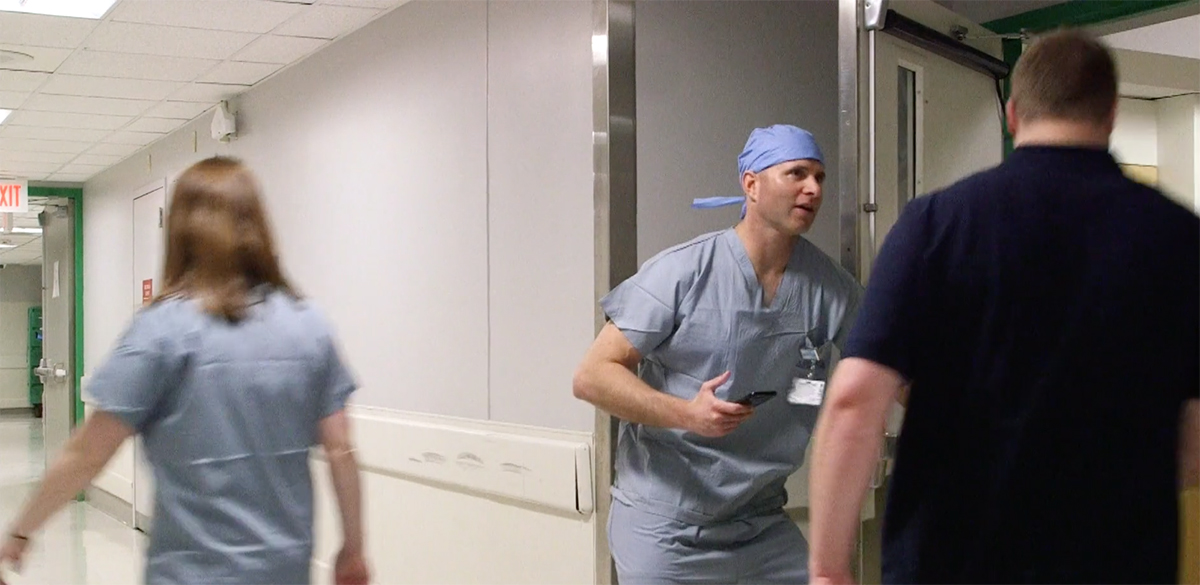The Chart: Local Health and Science News You Missed This Week
Welcome to the Chart, a weekly series that briefs you on interesting happenings in the local health, science, and research scene. Here’s what you missed this week:

A still from BWH’s video “Don’t Hold the Door”
A new security campaign at Brigham and Women’s Hospital.
Two years after a shooting rocked Brigham and Women’s Hospital (BWH), the hospital is rolling out a new campaign to stop “piggybacking” and “tailgating,” nicknames used to describe unauthorized people following staffers into secure areas, either undetected or because the employee held a door open. “It is vitally important for all employees to be aware of everyone in our environment and to ensure that no one accesses our restricted areas without permission,” Dave Corbin, director of security and parking at BWH, says in a statement.
BWH will install new signage near the 1,200 key card readers and locked doors around the hospital, reminding personnel to stay vigilant. Employees are also being briefed on protocol, and will receive reminder badges that provide step-by-step guidance. Finally, the campaign includes two videos detailing worst-case scenarios, which all employees will watch. They can be seen here—but be warned that they may be upsetting.
Insurance expansion really does improve outcomes.
In news that’s especially relevant this week, a Harvard T.H. Chan School of Public Health analysis confirms that health insurance expansion widens access to care, improves health outcomes, and reduces mortality. The analysis draws on more than 40 studies completed over the past decade—some of which have seemingly contradictory results, which the researchers chalk up to “major differences in study design or length or to the complexity of the links between insurance coverage and particular health effects.” Worth noting: The authors did find that insurance expansion raises healthcare costs, but concluded that it reduces patients’ out-of-pocket spending and remains a relatively cost-effective way to save lives.
See the full review here.
Making brain scans better.
A team of scientists from MIT and Massachusetts General Hospital developed an algorithm that can boost the resolution and quality of brain scans taken in a hospital. Such scans are often taken in a hospital setting—after a patient suffers a stroke, for example—but the quality is too low to do much with the images. Using data culled from a large body of scans, however, the team’s algorithm could extrapolate the missing data in a particular scan and fill it in with new pixels, creating a research-quality image. The technique could provide a wealth of new data for research studies.
Learn more here.


